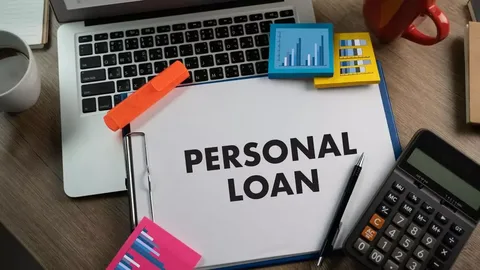When you find yourself in a financial bind or need funds for a big purchase, personal loans can be an excellent option. They offer flexibility and can be used for various purposes, from consolidating debt to financing a wedding. In this article, we’ll explore everything you need to know about personal loans, ensuring you have all the information at your fingertips. So, grab a cup of coffee, sit back, and let’s dive in!

Understanding Personal Loans
Personal loans are unsecured loans that allow you to borrow a specific amount of money to be repaid over a fixed period, usually with a set interest rate. Unlike mortgages or auto loans, you don’t need to put up collateral to secure personal loans, making them less risky for borrowers.
Types of Personal Loans
- Unsecured Personal Loans
These loans do not require any collateral. The lender evaluates your creditworthiness based on your credit score and income. This type is great for those who don’t want to risk their assets. - Secured Personal Loans
These loans require collateral, such as a car or savings account. They typically come with lower interest rates since the lender has a safety net in case of default. - Debt Consolidation Loans
If you’re juggling multiple debts, a debt consolidation loan allows you to combine them into a single payment, often at a lower interest rate. This can simplify your finances and potentially save you money. - Business Personal Loans
For those looking to finance a small business, personal loans can be a viable option, especially if you lack business credit history.
How to Apply for a Personal Loan
Applying for a personal loan can be as easy as pie, but there are a few steps you should follow to ensure you get the best deal.
Step 1: Check Your Credit Score
Before applying, check your credit score. Most lenders require a score of at least 580, but better rates are available for scores above 700. You can check your score for free through various online services.
Step 2: Compare Lenders
Don’t settle for the first offer you see. Use websites like Zekul.net or Cixiq.net to compare interest rates and terms from different lenders. This can save you a boatload of cash in the long run.
Step 3: Gather Documentation
Lenders will require documentation to process your application. This typically includes proof of income, employment verification, and information about your debts.
Step 4: Submit Your Application
Once you’ve found a lender that suits your needs, submit your application online or in-person. Be prepared for a credit check, which may temporarily lower your score.

Interest Rates and Fees
When considering a personal loan, it’s essential to understand the interest rates and any associated fees.
Interest Rates
Interest rates on personal loans can vary significantly based on your credit score, income, and the lender’s policies. Typically, rates range from 6% to 36%.
Fees to Watch Out For
- Origination Fees: Some lenders charge a fee for processing the loan, usually a percentage of the total amount.
- Late Payment Fees: Missing a payment can result in hefty penalties, so always pay on time!
- Prepayment Penalties: Not all lenders allow you to pay off your loan early without incurring additional fees.
Repayment Terms
Understanding repayment terms is crucial when taking out a personal loan.
Loan Duration
Most personal loans have terms ranging from 2 to 7 years. Shorter terms typically mean higher monthly payments but less interest paid over time.
Monthly Payments
Make sure you can comfortably afford the monthly payments. A good rule of thumb is that your total monthly debt payments should not exceed 36% of your gross monthly income.
When to Consider a Personal Loan
Personal loans can be a great option in various situations. Here are a few scenarios where they shine:
Medical Expenses
Unexpected medical bills can be overwhelming. A personal loan may help cover costs not covered by insurance.
Home Improvements
Want to renovate your kitchen or build a deck? Personal loans can provide the funds needed to boost your home’s value.
Travel Expenses
Planning a dream vacation? A personal loan can make that dream a reality without depleting your savings.
Insurance and Personal Loans
Some lenders may offer insurance products to protect your loan in case of unforeseen events like job loss or disability. While not always necessary, it can provide peace of mind.
Types of Insurance
- Credit Life Insurance: Pays off your loan in case of your untimely demise.
- Credit Disability Insurance: Covers your payments if you can’t work due to an injury or illness.
Common Myths About Personal Loans
Let’s debunk some myths that often confuse borrowers:
Myth 1: Personal Loans Are Only for Bad Credit
While it’s true that many people with bad credit turn to personal loans, they’re also a good option for those with good credit looking to finance a specific purchase.
Myth 2: You Can’t Use Personal Loans for Anything
Many people think personal loans can only be used for emergencies, but you can use them for virtually anything—weddings, vacations, and even starting a business!

Conclusion
Personal loans can be a lifesaver when used responsibly. By understanding the ins and outs of these loans, you’re better equipped to make informed financial decisions. Whether you’re consolidating debt or funding a new venture, the right personal loan can help you achieve your goals.
Feel free to share this article with anyone who might find it helpful! Remember, knowledge is power, especially when it comes to managing your finances. Happy borrowing!
Leave a Reply